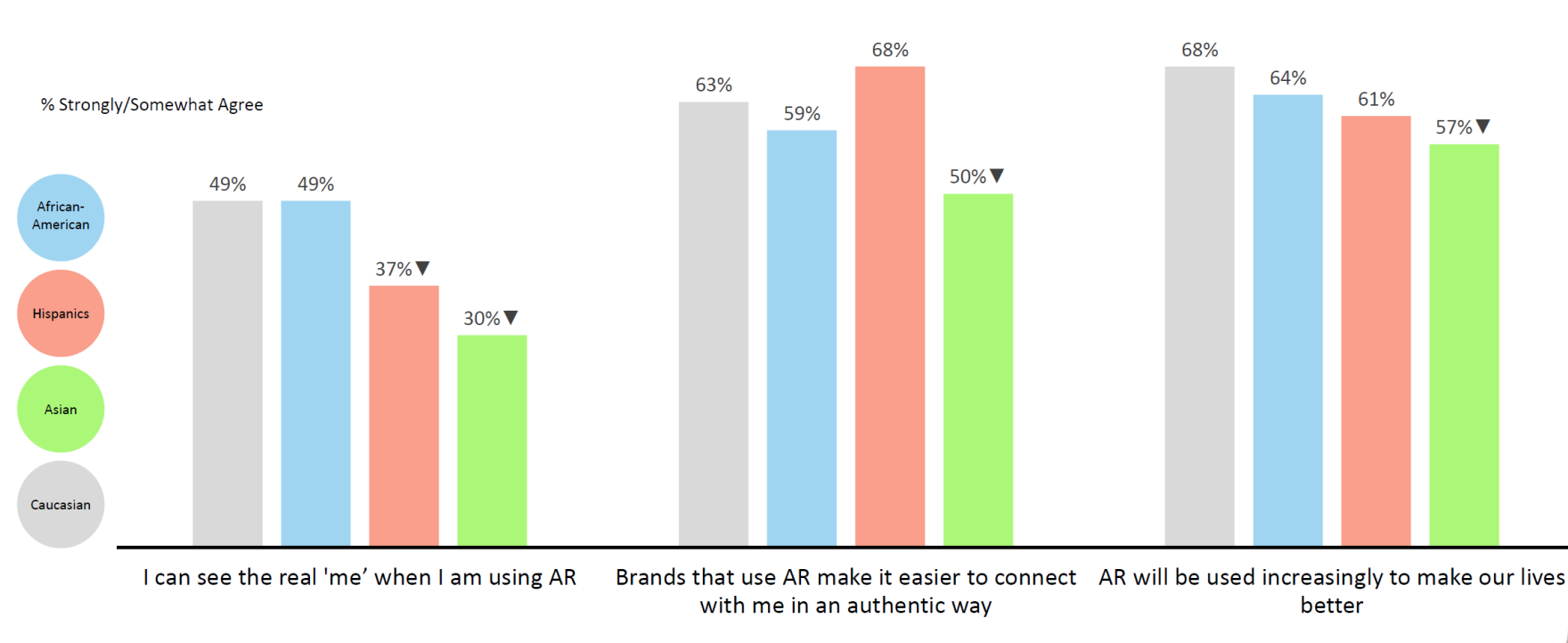
Augmented reality advertising is growing rapidly, yet the majority of experiences leave out diverse audiences and can be damaging to users’ self esteem, according to a new study.
Omnicom Media Group and Snapchat partnered on a research study that explored the long-term implications of AR on brand building.
The study involved interviews with AR practitioners and creators; quantitative surveys with 5,000 internet users across Australia, Canada, Saudi Arabia, the U.K. and the U.S., and a four-week measure of how brand associations changed over time with U.S. respondents.
AR is a fast-growing industry, spurred by the explosion of transformative filters offered by social apps including Instagram, Snapchat and TikTok, as well as AR apps such as Pokémon Go.
It is estimated that 2.9 billion users worldwide will be frequent AR users in 2023, a number that is expected to grow to 4.3 billion by 2025, according to a 2021 Deloitte study commissioned by Snap Inc.

OMG and Snapchat’s study found that sponsored AR experiences boost a variety of brand perceptions and lead to increased recall and purchase intent when compared to vertical video ads.
It also found that AR complements video ad buys by driving incremental gains, rather than acting as a replacement.
However, brands are not testing whether their AR experiences resonate with all users, as filters and lenses often whitewash diverse users or misidentify them.
Just under half of white and African American respondents said they can ‘see the real me’ when using AR, a statement that resonates less with Hispanic users (37 per cent) and Asian users (30 per cent).
Asian users were least likely to feel that brands were using AR to connect with them in an authentic way.
Non-white users specifically cited issues with their skin tones, eyes and noses being altered by lenses in a way that removes their identifying features.
In one example, an AR lens from a beauty brand that added mascara to users’ eyes transformed the eyes of Asian users to appear more caucasian.
The impact of social media filters and lenses on users’ body image and mental health is also an issue that is being scrutinised by governments around the world.
In a recent example, TikTok’s popular ‘bold glamor’ filter has sparked widespread criticism for significantly alerting users’ faces in a way that exacerbates their insecurities.
Kevin Soh, associate director of primary research at OMG, said: “We did some qualitative interviews and found that if you show users too much of an idealised version of themselves, that creates pressure for a lot of people in terms of how they should look and act,”
To avoid this, Soh suggested brands should focus on ‘celebrating what you do have instead of highlighting things that you might not have.’









